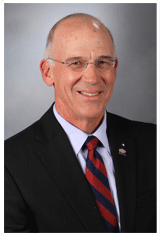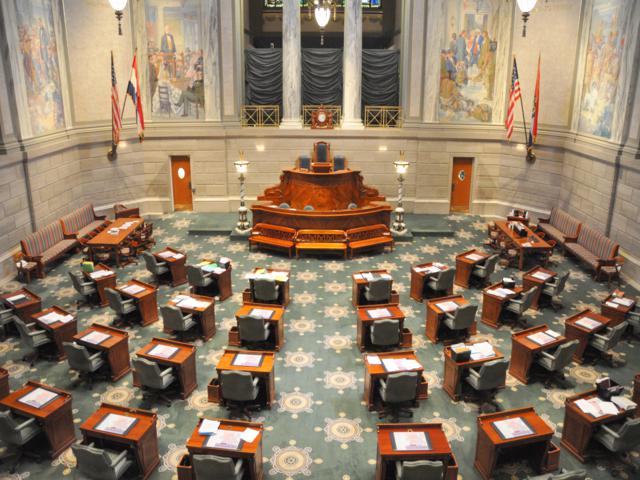JEFFERSON CITY, Mo. – With talks of reform echoing throughout the Capitol in the wake of a new administration, one area of reform that has been quietly in the works is that of regulatory reform for utility infrastructure.
A recent report issued by the Senate Interim Committee on Utility Regulation and Infrastructure Investment (SIRI) found that Missouri has failed to keep up with new technology and the changing demands of utility consumers.
In fact, the Edison Electric Institute named Missouri as one of the least progressive states for infrastructure investment.
In an effort to help get Missouri on track with a more modernized regulatory process, Senator Ed Emery, the chairman of the SIRI committee, filed legislation for the 2017 session to address the recommendations made by the committee.
Tasked with finding ways in which the utility regulatory process might better serve Missouri in a modernized and more efficient manner, the SIRI committee conducted a series of hearings in 2016, taking testimony from the Missouri Public Service Commission, Office of Public Counsel, Department of Economic Development and a number of utility groups, consumers, and environmental groups.
The committee released their findings in an end-of-year report, issued on Dec. 28th. The full 98-page report can be read here.
Companies currently rely heavily on the revenues that come from “highly unpredictable customer usage” due to the weather, which is difficult because they are not able to recover revenue in a timely manner. The consumers, meanwhile, have no cost assurances, meaning that planning for the monthly utility bill is always a guessing game.
The demands of consumers these days are far different than those of a decade ago: where once the demand for more energy was loudly called for, Missourians now desire less use of electricity, focusing on the conservation of energy while exploring new alternative sources.
Customers are demanding more control, using alternative sources and new technology to choose how much energy they use and where it comes from.
All of this, in turn, has led utility companies to look elsewhere for more predictable and attractive investment opportunities.

Perhaps the biggest issue is the current electrical grids, used to transport power to consumers. Emery and the committee believe it is time that Missouri invests in a modern electric grid, which would serve as a manager of electrical delivery rather than just a transportation method.
“A modern electric grid is the key to economic development in Missouri, allowing for inestimable potential in new job growth, innovation, and sustainability,” Emery wrote in the report.
And while modernizing the grid would help meet the demands of the consumers by helping them to better manage their energy usage, it requires major investments from the providers.
The committee’s research and testimony suggests that modernizing the grid is only half of the equation; the other half is adjusting the policies and regulations, allowing rates to provide for the capital expenditures required to modernize the grid.
Emery has filed three bills before the Senate that address the recommendations of the committee, putting the steps in motion.
SB 214 would modify provisions in relation to ratemaking for public utilities. SB 215 addresses the issues of rate adjustment mechanisms, and would allow the PSC to utilize rate adjustment mechanisms not currently authorized by statute to promote modernization and the replacement of electrical corporation infrastructure, while SB 242 would establish the Rate Case Modernization Act.
Emery believes that by adopting new policy alternatives, both consumers and utilities would benefit.
But not everyone agrees that the current systems need to be changed.
Senator Gary Romine, R-Farmington, argued that allowing formula rates would strip power from the PSC and also reduce consumer protections.
When asked for his personal assessment of the “adequacy of the status quo”, Romine responded, saying “the current system appears to be working well as a significant amount of infrastructure replacement is occurring and consumers are protected.”
“We have the 7th lowest rates in the country, and the utility companies remain profitable as judged by their earnings and stock price.”
Emery’s bills have moved forward after being second read on Thursday, and have been referred to the Senate Commerce, Consumer Protection, Energy and the Environment Committee for review.
Benjamin Peters was a reporter for The Missouri Times and Missouri Times Magazine and also produced the #MoLeg Podcast. He joined The Missouri Times in 2016 after working as a sports editor and TV news producer in mid-Missouri. Benjamin is a graduate of Missouri State University in Springfield.












